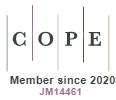“Neoliberalismo e neoconservadorismo na educação brasileira contemporânea: uma leitura freireana da base nacional comum curricular e do movimento escola sem partido”
DOI:
https://doi.org/10.5585/eccos.n60.15701Palavras-chave:
BNCC, escola sem partido, neoconservadorismo, neoliberalismo, Paulo Freire.Resumo
Propomos neste artigo uma leitura crítica da Base Nacional Comum Curricular e do movimento Escola sem Partido, dois projetos que, ao nosso ver, estão em consonância com uma tendência neoliberal e neoconservadora das políticas educacionais brasileiras contemporâneas. A partir de uma retomada de conceitos idealizados por Paulo Freire, não por acaso o educador que está no cerne da crítica do movimento Escola sem Partido à educação nacional, nós buscamos uma compreensão mais crítica desses dois documentos, procurando entender os valores e os interesses que os movem, à luz da obra freireana. Este trabalho traz à tona quão desafiadora é a leitura de textos que se apropriam de uma linguagem democrática para fazer propostas que são neoliberais e neoconservadoras na prática. Esse desafio, no entanto, evidencia a importância de ler criticamente e essas e outras políticas educacionais atuais, para que possamos construir uma resistência que esteja à altura das ameaças que a educação democrática enfrenta hoje.
Downloads
Referências
AVELAR, Marina, BALL, “Stephen. Mapping new philanthropy and the heterarchical state: The Mobilization for the National Learning Standards in Brazil”. In: International Journal of Educational Development, 2018.
BRASS, Jory. “English, literacy and neoliberal policies: Mapping a contested moment in the United States”. English Teaching: Practice and Critique. 2014.
BRASS, Jory, HOLLOWAY, Jessica. “Making accountable teachers: the terrors and pleasures of performativity”. In: Journal of Education Policy, Volume 33, 2018 - Issue 3, 2017.
CARA, Daniel. “Contra a barbárie, o direito à educação”. In: Educação contra a barbárie. Boitempo, 2019a.
CARA, Daniel. “O programa ‘Escola sem Partido’ quer uma escola sem educação”. In: A ideologia do movimento Escola sem Partido. Ação Educativa, 2019b.
CÁSSIO, Fernando. “Existe vida fora da BNCC?” In: Educação é a Base? 23 educadores discutem a Base. Ação Educativa, 2019.
DUBOC, Ana Paula, FERRAZ, Daniel. “Reading ourselves: placing critical literacies in contemporary language education”. In: Revista Brasileira de Linguística Aplicada. 2018.
FORTES, Olívia Bueno Silva. Neoliberalismo e a educação contemporânea: professores de inglês entre a criticidade, a neutralidade e a censura. 2019. Dissertação (Mestrado em Educação) - Faculdade de Educação, Universidade de São Paulo, São Paulo, 2019. doi:10.11606/D.48.2020.tde-09122019-160548. Acesso em: 2022-03-07.
FREIRE, Paulo. À sombra desta mangueira. Paz e Terra, 1993.
FREIRE, Paulo. Pedagogia da autonomia: Saberes necessários à prática educativa. Editora Paz e Terra, 2016a.
FREIRE, Paulo. Pedagogia da indignação: cartas pedagógicas e outros escritos. Paz e Terra, 2016b.
FREIRE, Paulo. Pedagogia do oprimido. Rio de Janeiro, RJ: Paz e Terra, 2011.
FREIRE, Paulo. Professora, sim; tia, não: cartas a quem ousa ensinar. Rio de Janeiro: Paz e Terra, 2017.
FREIRE, Paulo, SHOR, Ira. Medo e Ousadia. Paz e Terra, 1987.
GIROTTO, Eduardo. “Um ponto na rede: o ‘Escola sem Partido’ no contexto da escola do pensamento único”. In: A ideologia do movimento Escola sem Partido. Ação Educativa, 2019.
GIROUX, Henry. The Terror of Neoliberalism. Authoritarianism and the Eclipse of Democracy. Garamond Press, 2004.
GIROUX, Henry. “Paulo Freire and the Politics of Postcolonialism”. In: Journal of Advanced Composition, 1993.
JANKS, Hilary. Literacy and Power. Routledge, 2010.
LAVAL, Christian. A Escola não é uma empresa: o neo-liberalismo em ataque ao ensino público. Editora Planta, 2004.
LINGARD, Bob, RIZVI, Faval. “Education policy and the allocation of values”. In: Globalizing education policy. Routledge, 2009.
LINARES, Alexandre, BEZERRA, José. “Obscurantismo contra a liberdade de ensinar”. In: Educação contra a barbárie. Boitempo, 2019.
LOPES, Bárbara. “BNCC e o avanço neoliberal nos discursos sobre educação”. In: Educação é a Base? 23 educadores discutem a Base. Ação Educativa, 2019.
MANHAS, Cleomar. “Nada mais ideológico que ‘Escola sem Partido’”. In: A ideologia do movimento Escola sem Partido. Ação Educativa, 2019.
PINCHONELLI, Matheus. “Homeschooling e a domesticação do aluno”. In: Educação contra a barbárie. Boitempo, 2019.
PONTUAL, Pedro. “Educação popular e participação social: desafios e propostas para hoje”. In: Educação contra a barbárie. Boitempo, 2019.
SANTOS, Catarina. “Educação a Distância: tensões entre expansão e qualidade”. In: Educação contra a barbárie. Boitempo, 2019.
SILVA, Tomaz, GENTILI, Paulo. Escola S.A. - Quem ganha e quem perde no mercado educacional do neoliberalismo. CNTE, 1996.
SILVA, Tomaz. Documentos de identidade - uma introdução às teorias do currículo. Autêntica, 2017.
SINGER, Helena. “Afinal, o que os brasileiros precisam saber?”, 2017. Disponível em: http://educacaointegral.org.br/reportagens/afinal-o-que-os-brasileiros-precisam-saber/
VASCONCELOS, Joana. “A escola, o autoritarismo e a emancipação”. In: A ideologia do movimento Escola sem Partido. Ação Educativa, 2019.
Downloads
Publicado
Como Citar
Edição
Seção
Licença
Copyright (c) 2022 EccoS – Revista Científica

Este trabalho está licenciado sob uma licença Creative Commons Attribution-NonCommercial-ShareAlike 4.0 International License.
- Resumo 722
- PDF 555









